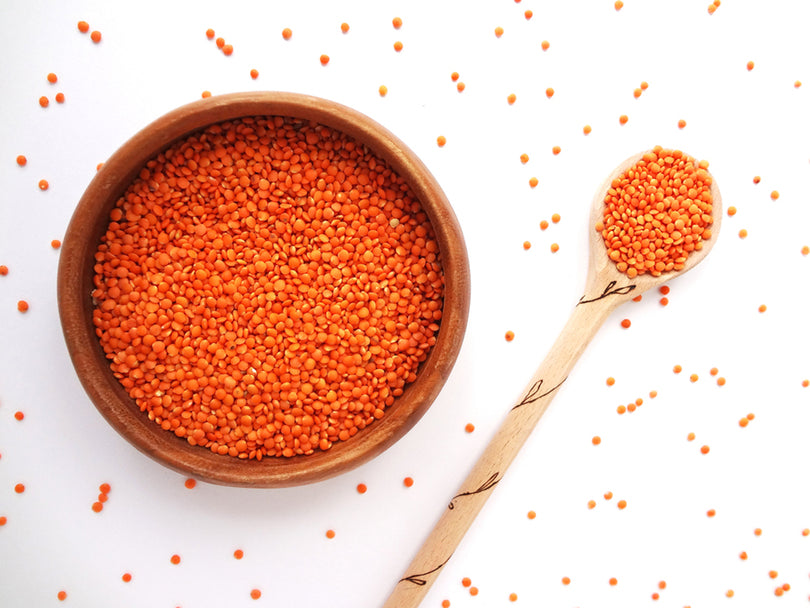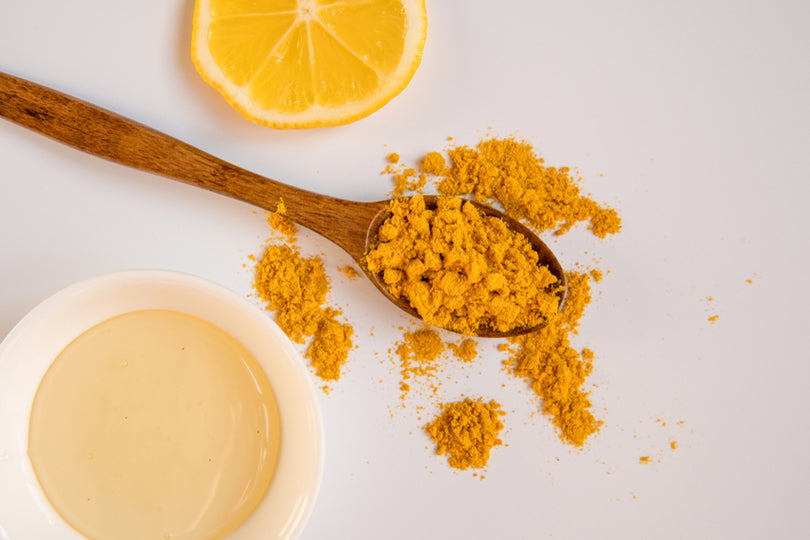Natural Sugar Alternatives And Artificial Sweeteners


So many people are becoming increasingly conscious of the amount of sugar in their diets, and more aware of the effects that sugar has on our bodies.
You probably already know that eating refined sugar and sugary foods can cause your blood sugar levels to quickly spike and then drop. This can leave you feeling lethargic, moody and hungry.
What can be confusing when trying to cut back on sugar is whether natural sugar alternatives are better for us. If you are looking for some ideas on sugar substitutes or information about artificial sweeteners, you have come to the right place! Keep reading to learn more.
Jump to:
- What are natural sugar alternatives?
- Types of sweeteners
- Healthy sugar alternatives
- Fructose
- Dates
- Raw honey
- Pure maple syrup
- Rice malt syrup
- Blackstrap molasses
- Coconut sugar
- Agave nectar
- Artificial sweeteners
- Stevia
- Xylitol
- Erythritol
- Sucralose
- Saccharin
What are natural sugar alternatives?
We are lucky that there are natural sugar alternatives that can be used for healthier sugar substitutes that can also minimise rapid blood sugar spikes. Honey or maple syrup, for example, may offer additional benefits other than just cutting refined sugar intake.
Now, when I say that these sweeteners are natural, I mean they may have undergone less processing than regular table sugars. Sorry to burst your bubble, ladies, but just because these sugar alternatives may be closer to their natural state than table sugar, that doesn’t mean they should be consumed in large amounts every single day. Even natural sugars are still sugar, so it is important to be mindful of the amount you are using.
With that in mind, natural sugars can be easier for your body to break down and as I mentioned, they can offer other benefits too. For example, you can find natural sugars in foods like yoghurt and milk, as well as fruit — these foods offer some additional nutrients, like calcium, potassium or fibre.
Before I talk more about natural sugar alternatives and artificial sweeteners, I want to explain a bit more about how these sugar substitutes can be grouped as well.
Types of sweeteners
Whether we are talking about artificial sweeteners or natural sugar alternatives, these are generally classified into two main types of sweeteners — nutritive and non-nutritive.
Nutritive sweeteners
Nutritive sweeteners can provide the body with energy, as well as giving the body fibre, vitamins, minerals and antioxidants. Many natural sugar alternatives can be classed as nutritive sweeteners.
Non-nutritive sweeteners
Non-nutritive sweeteners offer little in terms of nutritional value but are very sweet, so only a little bit is needed. With the exception of Stevia, most non-nutritive sweeteners are chemically made.
Healthy sugar alternatives
These nutritive sugars can be used as natural sugar alternatives in baking or cooking, with some suitable for adding to tea or coffee as well.

Fructose
Fructose is the naturally occurring sugar that is found in fruit and honey. It has the lowest glycaemic index (GI) of natural sugars, which means it doesn’t cause the same large spike and fall in blood glucose levels that refined sugars can.
What makes fructose a good natural sugar alternative? Fructose is a nutritive sweetener, so it provides your body with other nutritional benefits. For example, eating a whole piece of fruit provides your body with water, fibre, vitamins, minerals and antioxidants.
When it comes to fruit juice, however, the benefits can be outweighed as juice can include 3-4 times the amount of fruit (and fructose). Most fruit juice is missing a large portion of the fibre too.
Fructose can be a good sugar substitute in baking as it adds natural sweetness. Try swapping 1 cup of sugar for ½ cup of mashed banana or apple puree in some of your favourite recipes. You can also use sliced fruit as a flavouring in water — like my summer fruit infused water!

Dates
Dates can be a great natural sugar alternative as they are high in fibre, which can slow down the absorption of the natural sugar they contain. If you are making protein bars or a protein smoothie, dates can be a great way to add sweetness. My cookies and cream protein shake is just one example of this!
If you like using dates, dried fruits can also be used as natural sweeteners — dried apricots, raisins and dried figs are popular options!
When drying fruit, the moisture is removed, which leaves a more energy-dense version of the fruit. Because the water has been removed from the fruit, the concentration of sugar is higher, although the nutrients and fibre are usually retained as well. Because the level of fructose is high, be mindful not to eat too much dried fruit.

Raw honey
Pure raw honey is not only a natural sugar alternative, it is also considered a food. Honey contains amino acids, some electrolytes and antioxidants, as well as antimicrobial compounds.
The colour of the honey is a great indication of the flavour — darker honey is often stronger in flavour with more nutrients, like Manuka honey.
Raw honey can be used as a sugar substitute in anything from a bowl of oats to smoothies, marinades and baking recipes. Just remember that honey can burn more quickly than sugar, so you may need to lower the temperature if you are using honey as a sugar substitute.

Pure maple syrup
A natural sugar alternative, 100% pure maple syrup is made from the sap of the maple tree. Much like honey, maple syrup can be used for baking, cooking and for drizzling over pancakes, oatmeal, granola or yoghurt. It’s heat stable, which makes it ideal for marinades, glazes and sauces.
As pure maple syrup is low GI and contains the minerals zinc, potassium and calcium, it is a popular sugar substitute. Just remember to check the label says ‘100% pure maple syrup’ and not ‘maple flavoured’!

Rice malt syrup
Derived from brown rice, rice malt syrup is made by adding enzymes to break down the starch molecules, which is then cooked down to a syrup. Although it comes from brown rice, once broken down, rice malt syrup becomes 100% glucose. This means it is high GI and can quickly raise blood sugar levels.
Rice malt syrup can be used as a sugar replacement in most baking recipes, although it is not as sweet as sugar.

Blackstrap molasses
Syrupy with a slightly bitter taste, blackstrap molasses is the dark, thick byproduct leftover when processing sugarcane into sugar. While blackstrap molasses isn't as sweet as other natural sugar alternatives, it is rich in minerals such as magnesium, potassium, calcium and iron. Blackstrap molasses also has high levels of antioxidants.

Coconut sugar
While the name might suggest otherwise, coconut sugar doesn’t actually taste like coconut! It is made from the sap of flower buds that are cut from the coconut palm. Coconut sugar has had minimal processing, so it retains most minerals and vitamins, although these are present in small amounts.
Coconut sugar looks and feels a lot like raw sugar and it is often used as a brown sugar substitute, particularly in baking.

Agave nectar
Extracted from the sap of the agave plant, agave nectar is a sugar substitute that is high in fructose but low GI. Tasting sweeter than sugar, agave nectar can be used in the same way as honey, making it one of the most popular natural sugar alternatives.
Artificial sweeteners
These sugar substitutes are often low in calories, although they may offer little in terms of nutritional value.

Stevia
A non-nutritive sweetener, stevia is 200-300 times sweeter than sugar, so a little goes a long way! Stevia doesn’t have any calories, so it can be a sugar substitute for those who need to be mindful of their blood sugar levels.

Xylitol
An artificial sweetener made from glucose, xylitol is a sugar alcohol found in small amounts in fruit and vegetables. It is lower in calories than sugar, however, as a non-nutritive sweetener, there is little nutritional value. Xylitol is often used in baking or to replace sugar in drinks.

Erythritol
A form of sugar alcohol found in fruits and mushrooms, erythritol is also a non-nutritive sweetener. With fewer calories than xylitol and tasting sweeter than sugar, erythritol is often used in cooking and baking.
Something to keep in mind is that erythritol is only partially absorbed and digested in the gut, so some people find it leaves them with some gastrointestinal discomfort.

Sucralose
A popular sugar substitute, sucralose is actually processed from sugar and is often made into artificial sweeteners such as Splenda. It has no calories but it does taste much sweeter than sugar and can be used for baking, cooking or frozen meals.

Saccharin
With no calories and a much sweeter taste than sugar, saccharin is often mixed with other artificial sweeteners. Saccharin can be combined with other ingredients, such as dextrose and cream of tartar, to make sweeteners such as Sweet’N Low.
Saccharin can be used as a sugar substitute in baking or as a sweetener for tea and coffee.
Choosing between sugar alternatives and artificial sweeteners
If you’ve looked through some of the healthy recipes on my blog, you would have noticed that I tend to use natural sugar alternatives, like maple syrup, honey or dates. Using fruit as a sweetener means I get some extra nutritional benefits too!
Whether you use natural sugar alternatives or artificial sweeteners, remember that these should be used in moderation. While the nutritive sweeteners in this list may be healthy sugar alternatives to white sugar, they are still forms of sugar.
What are some of your favourite natural sugar alternatives and how do you use them?
* Disclaimer: This blog post is not intended to replace the advice of a medical professional. The above information should not be used to diagnose, treat, or prevent any disease or medical condition. Please consult your doctor before making any changes to your diet, sleep methods, daily activity, or fitness routine. Sweat assumes no responsibility for any personal injury or damage sustained by any recommendations, opinions, or advice given in this article.




<#= c.user.username #><#= moment(c.created_at * 1000).fromNow() #>
<#= c.html_body #> <# if (c.images) { #>
<# } #>